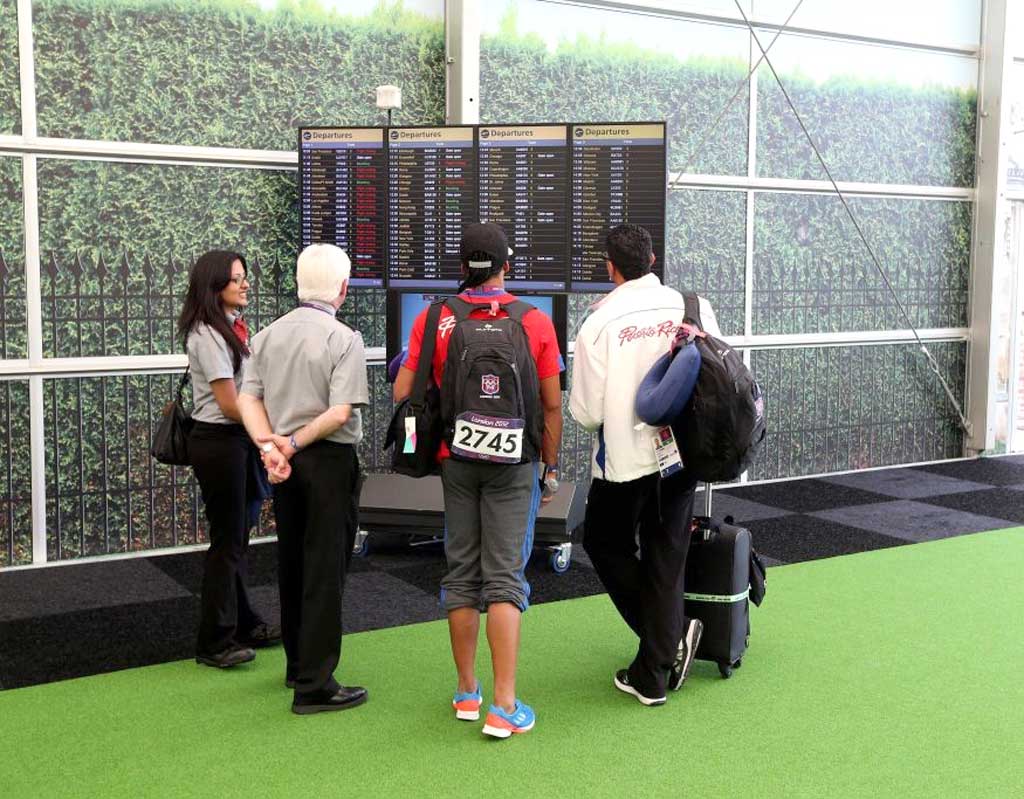Simon Calder: How Britain blunted its Olympic edge
The Man Who Pays His Way

Your support helps us to tell the story
From reproductive rights to climate change to Big Tech, The Independent is on the ground when the story is developing. Whether it's investigating the financials of Elon Musk's pro-Trump PAC or producing our latest documentary, 'The A Word', which shines a light on the American women fighting for reproductive rights, we know how important it is to parse out the facts from the messaging.
At such a critical moment in US history, we need reporters on the ground. Your donation allows us to keep sending journalists to speak to both sides of the story.
The Independent is trusted by Americans across the entire political spectrum. And unlike many other quality news outlets, we choose not to lock Americans out of our reporting and analysis with paywalls. We believe quality journalism should be available to everyone, paid for by those who can afford it.
Your support makes all the difference.Such was the deluge of contradictory percentages raining down on the world of travel and tourism this week, that by Thursday I was 100 per cent convinced that I needed a holiday.
On Tuesday, for example, we learned that rail tickets would be 6.2 per cent more expensive next year – but by Wednesday FirstGroup was promising to cut fares by 15 per cent on its new West Coast Mainline franchise, despite an obligation to pay the Treasury £13 every second until Easter 2026.
The skittish statistics started around elevenses on Sunday. Initially, the likely size of Britain's tourism dividend from the Olympics rose by a good few per cent as the marathon men orbited between Westminster and the City, on a route carefully devised to deliver one enticing London backdrop after another.
By the time Ray Davies had sung "Waterloo Sunset" in the first half-hour of the Closing Ceremony, millions of people were swarming like flies around the worldwide web for the chance to visit the Kinks' singer's personal paradise in London SE1.
But within two hours – as X-Factor losers followed partied-out has-beens and Nineties nonentities on to the world's screens – 99 per cent of the prospective visitors thought better of the idea, not least to eliminate the risk of encountering a politician dancing (in the loosest sense of the word).
In tourism terms, the Closing Ceremony comprised the longest suicide note in history.
Smoke and ire
Always look on the bright side of life, though – and if you can't do that, then look at Twitter. Only 10 per cent of posts about Sunday's cultural debacle were printable, of which one was "Highlight of the Olympic Closing Ceremony: watching the North Korean athletes shift nervously while George Michael sang 'Freedom'."
After witnessing this squandered opportunity to showcase Britain, some overseas visitors could not get away fast enough. I called in at Heathrow Terminal 4 at 4.30am on Monday morning to find several hundred people already queuing for departing transatlantic flights – over four hours before the first departure.
Or perhaps they had heeded a warning by the airport's owner, BAA, that 13 August would be the "Busiest day in Heathrow's history".
Whatever the people who devised the dismal Closing Ceremony were smoking, they presumably shared it with the BAA officials who made the most absurd assertion of the entire Olympics: that 100 per cent of the seats on every flight leaving Heathrow the day after the closing would be full, with 138,000 departing passengers. This prediction overshot reality by almost 20 per cent.
It was a normal August day at Heathrow, though some of the passengers had abnormal luggage – which is where the temporary Games Terminal came in. Each athlete was expected to be travelling with four or more bags, many of which were classed as "out of gauge". The cunning plan was to keep them separate from normal people, by channelling them through a shed that was basically a security search area leading to a bus station.
Decked out with plastic grass, the Games Terminal felt like a garden centre on the last day of a sale, only with more interesting customers. The athletes were bussed to the appropriate permanent terminal for take off – though some were still clutching cabin baggage in the kind of quantities that could trigger a lifetime ban from Ryanair.
The weary competitors who I met were uniformly complimentary about the logistics of London 2012, and the role played by the Games Makers – including the airport's own volunteers, the "Heathroses". Esther Lofgren, a rower who helped the USA to its 46 gold medals, said: "I can't believe you guys have so many friendly volunteers so early in the morning." Before the Games she had heard "horror stories" about the Tube, but concluded: "It's all been great."
Jet bet debt met
You may recall my view in these pages that the probability of the 100 per cent "load factor" happening was zero, as well as my scepticism about Heathrow's other Olympic projections. I also proposed a bet with BAA bosses: if any day before or after the Games broke the record for passenger numbers I would pay £100 to charity, if they agreed to make the donation if no record was set.
The airport's owners never formally accepted the wager. But sportingly BAA tells me it has paid £1,000 to Whizz Kidz, the charity for disabled children. In the spirit of the times, I have added the £100 I had set aside to settle the bet, increasing the charity's winnings by 10 per cent.
Join our commenting forum
Join thought-provoking conversations, follow other Independent readers and see their replies
Comments